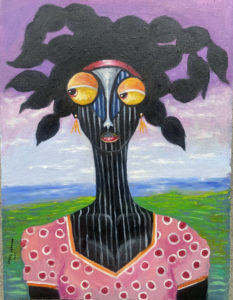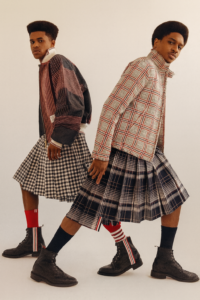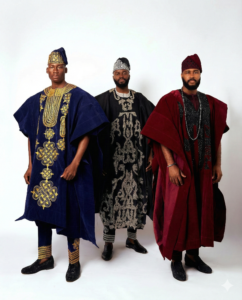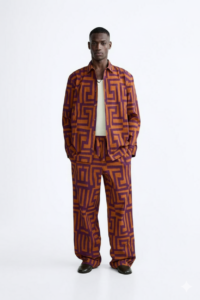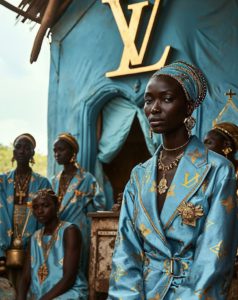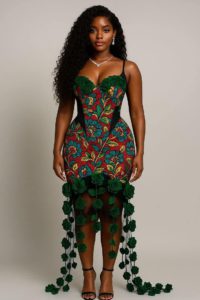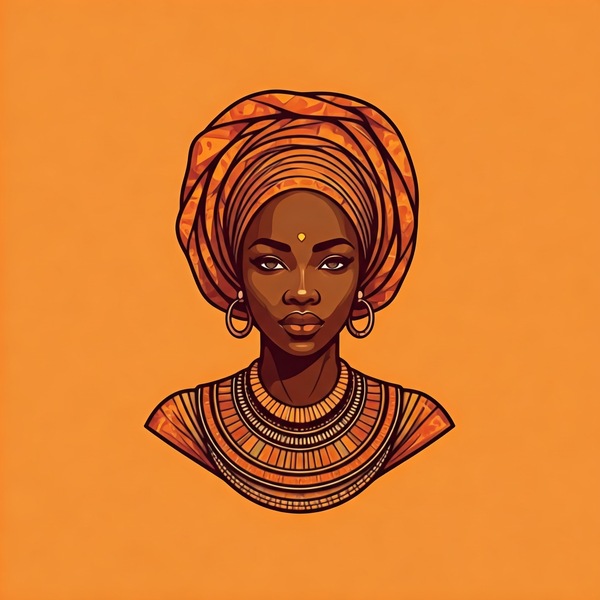How Nigerian Artists Are Painting a New Social Reality
Nigerian artists are at the forefront of a powerful movement for social change. Through their compelling visual narratives, they illuminate injustices, celebrate heritage, advocate for awareness, empower marginalized voices, and foster critical dialogue.
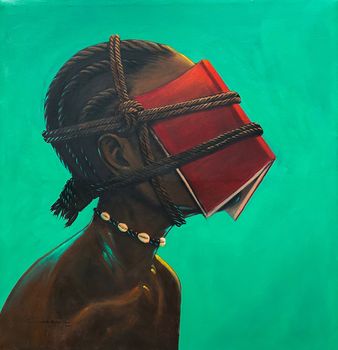
In the vibrant and dynamic landscape of Nigerian contemporary art, a powerful force is emerging – artists who wield their creative talents not just for aesthetic pleasure, but as potent tools for social commentary and catalysts for meaningful change. Across canvases, through sculpted forms, within the lens of a camera, and in the immersive realm of performance, Nigerian artists are fearlessly engaging with pressing social issues, sparking dialogue, and advocating for a more just and equitable society. Their art serves as a visual heartbeat of the nation, echoing its triumphs, lamenting its challenges, and boldly envisioning a better future.
Shining a Light on Inequality
Many Nigerian artists are using their work to unflinchingly confront the stark realities of social injustice and inequality that persist within the nation. Visionaries like Victor Ehikhamenor weave intricate narratives that often touch upon the corrosive effects of corruption and the urgent need for environmental stewardship, prompting viewers to consider the broader societal implications of these issues. Nnenna Okore’s textured sculptures and installations frequently speak to the resilience of marginalized communities and the often-overlooked beauty found within their struggles. Abdulwadud Afolabi (Mr Waduud), with his signature vibrant style, delves into the complexities of the human condition, tackling societal taboos and shedding light on the often-stigmatized realm of mental health.
Beyond the traditional gallery space, street art has become a powerful and accessible platform for social critique. Across the urban sprawl of Nigeria, artists are using murals and graffiti to directly engage with the public, painting bold statements against corruption, demanding better governance, advocating for human rights, and challenging deep-seated social inequalities, including gender discrimination and economic disparities. These public artworks serve as visual disruptions, forcing conversations and raising awareness among a broad audience.
Celebrating Heritage, Shaping Identity
Amidst the focus on social challenges, Nigerian artists are also playing a crucial role in celebrating and preserving the nation’s rich cultural heritage. Many contemporary creators skillfully integrate traditional artistic elements, motifs, and cultural symbols into their work, forging a powerful dialogue between the past and the present. The esteemed Nsukka Art School, renowned for its unique artistic philosophy, exemplifies this by seamlessly blending indigenous Igbo cultural traditions with contemporary art techniques, creating a distinctive visual language that speaks to both local and global audiences. Artists like Njideka Akunyili Crosby, through her layered and evocative paintings, explore the intricate tapestry of Nigerian identity, the complexities of migration, and the nuanced experiences of navigating cross-cultural landscapes.
Art as Political and Social Advocacy
Throughout Nigeria’s dynamic history, artists have consistently acted as keen observers and powerful responders to the prevailing socio-political climate. From the artistic expressions of pre-colonial societies to the vibrant output of the post-independence era, art has served as a vital “mirror to contemporary society,” reflecting its hopes, anxieties, and struggles. The concept of “Art as Protest” underscores the long-standing tradition of Nigerian artists engaging with their indigenous cultures and the socio-political milieu, often acting as the “conscience of society,” fearlessly speaking truth to power. Artists associated with the Nsukka Art School, including luminaries like Obiora Udechukwu and Krydz Ikwuemesi, are particularly recognized for their courageous “protest art” that directly addresses sensitive political issues, challenging injustice and advocating for a more equitable nation.
Amplifying Underrepresented Voices
A significant aspect of the social change being driven by Nigerian artists is their commitment to empowering marginalized communities and raising awareness about the unique challenges they face. Artists are using their platforms to give voice to those whose stories often go unheard. Lanre Olagoke, a British-Nigerian artist deeply connected to his heritage, actively uses his art and his foundation to empower young people from diverse and often marginalized backgrounds through providing access to the transformative power of the arts. Furthermore, artists like Matthew Eguavoen challenge conventional beauty standards and question restrictive societal constructs, using his work to celebrate the versatility and beauty of African skin color and to deconstruct limiting gender roles.
Art as a Catalyst for Conversation
Beyond raising awareness, Nigerian artists are actively fostering dialogue and encouraging critical thinking within their communities. Their visual narratives serve as potent catalysts for public discourse, prompting crucial conversations about pressing social and political issues that might otherwise remain unspoken. By presenting alternative perspectives and challenging dominant narratives, artists encourage viewers to critically examine their social reality, question existing norms, and envision possibilities for change. Museums and art spaces within Nigeria are increasingly recognizing their vital role in facilitating this social impact, creating platforms where art and the community can engage in meaningful and transformative dialogue.
The Canvas of Impact
The commitment of Nigerian artists to social change is not limited to individual artistic expression. Numerous impactful initiatives are underway across the country:
- Thematic Exhibitions: Art exhibitions specifically curated around socio-political themes provide dedicated spaces for artists to voice their concerns and engage the public in focused discussions.
- Community-Based Art: Street art projects and community art workshops bring art directly to the people, democratizing access to creative expression and sparking conversations within everyday life.
- Collaborations for Change: Partnerships between artists and non-governmental organizations (NGOs) are amplifying social justice messages, leveraging the power of art to raise funds and promote community engagement on specific issues.
Nigerian artists are at the forefront of a powerful movement for social change. Through their compelling visual narratives, they illuminate injustices, celebrate heritage, advocate for awareness, empower marginalized voices, and foster critical dialogue. Their art serves as a vibrant and essential force in shaping a more just, equitable, and conscious Nigerian society, demonstrating the profound power of creativity to inspire action and paint a brighter future for the nation.

